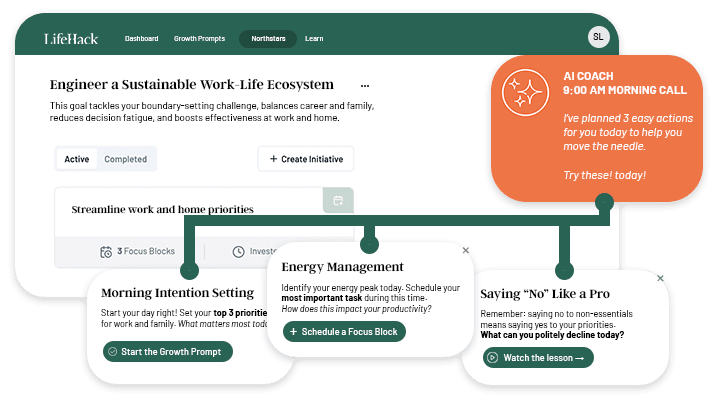In the wake of the great recession, a generation of so-called ‘accidental entrepreneurs’ emerged and revolutionized the small business environment. This has triggered a gradual evolution in the workplace, which may result in an estimated 40% of the U.S. workforce alone being self-employed by the year 2020. Alongside the age of technological advancement, the changing economic landscape has made it easier than ever for friends and family to launch business ventures with minimal experience and financial resources.
However, just because people have the resources to launch a business does not mean that they should. Despite innovation and increased accessibility, the worlds of commerce and industry remain extremely difficult to conquer. From fluctuating financial markets and unique commodities such as gold to industry competition, there are multiple factors that can undermine a fledgling business and ruin a pre-existing relationship between friends and family members.
With this in mind, here are 15 compelling reasons why you should avoid starting a business with friends and family members: –
1. Friendship Does Not Translate into Business Compatibility
When starting a business venture with a friend or beloved family member, it is tempting to believe that your existing relationship will easily translate into a successful commercial union.
This is rarely the case, however, as even people with similar values and philosophies may not share the same approach to completing various business tasks. This can create significant conflict when establishing a business model or cultivating a company culture, which in turn has the potential to undermine even the most durable of relationships.
2. Friends and Family Rarely Plan for Worst Case Scenarios
U.S. attorney Mark J. Kohler specialises in disputes which unfold between friends and family members who have unsuccessfully attempted to launch a business. His advice is therefore extremely worthwhile, and he identifies one of the key issues is a lack of communication between aspiring business partners.
More specifically, he advises friends and family members to consider all potential worst-case scenarios in detail before making a fixed commitment, so that they can develop viable contingency plans and prepare their friendship in the event of failure.
3. It Can be Difficult to Create Clearly Defined Business roles
The majority of friendships are formed organically, which means that there are no predetermined roles or structural hierarchies. The same cannot be said for business partnerships, which are forged by choice and constructed to include individual roles and responsibilities. This almost always requires one partner to take an authoritative, leading role, which can create imbalance in an existing friendship and ultimately cause unrest.
There may be a tendency among friends and family members to avoid this entirely, but this may expose the business to a critical lack of leadership.
4. Your Business Goals May Differ from Those of Your Partner
On a similar note, your motivation for launching a business may differ to that of your friend or family member. For example, while you may aim to realize the long-term goal of launching a successful business, your partner may want nothing more than to earn some additional money to supplement their existing income. This is entirely opposed to the foundation of commercial partnerships, which should be formed from a common goal and fixed business aspirations.
Such a gap in expectations can be devastating, as it can trigger arguments, undermine business growth and compromise friendships.
5. The Price of Failure is Far Higher
According to industry statistics and successful entrepreneur Theo Paphitis, an estimated 50% of all small businesses fail during their first 24 months of trading. Such failure often comes at a considerable cost to small-business owners, although this is often restricted to financial losses.
For those who partner with a friend or family member, however, the failure of a business venture can create a strain that even established relationships are unable to cope with. This means that the cost of failure is even higher, as it can compromise both your personal and professional lives.
6. Financial Arrangements and Friendships Make for Uneasy Bed fellows
There is an old adage which suggests that you should never lend friends or family members’ money, and the same principle can be applied to launching a business venture. This is because each partner may be required to invest some of their personal capital into funding the venture, which in turn creates a financial arrangement that binds two friends in a legal contract. The issue with this is obvious, as a single act of negligence or irresponsible behavior by one individual can impact heavily on their partner.
Unlock Your Time Potential: From Chaos to Control
Discover how to reclaim your time and transform chaos into productivity with our comprehensive Time/Life Assessment.
If you're ready to take control of your time and boost your efficiency, don't miss this opportunity to get a personalized analysis and action plan.

If you consider the financial cost of successful personal injury claims that arise as a result of carelessness, for example, it is easy to see why friends should avoid funding a joint business venture.
7. You May Struggle to Plan Holiday’s and Breaks Away
Whenever you start an independent business with a beloved family member, you are placing an incredible strain on both your personal and professional time. Booking holidays or breaks away together in the sun can be particularly difficult, as this may expose your business to a lack of leadership at a critical juncture. Unless you have a trusted employee who can hold the ford and lead strategically in your absence, you may need to stagger your holidays and take separate breaks.
8. You Will Place a Huge Strain on Your Finances
While there are many reasons that you may choose to launch a business venture with a partner, benefiting from an influx of capital is one of the most prominent.
The cost of establishing a business can be considerable, so it is natural to share this financial burden with a trusted partner who can also add experience, strength and leadership. Starting a business with an immediate family member is an entirely different entity, however, as you may be drawing capital from a more restricted source and placing a greater strain on your finances.
9. Friends and Family Business Ventures Usually Lack Expertise
Aside from the ability to provide an initial investment, a carefully selected, independent business partner can also bring considerable expertise and experience to your venture. You may need to compromise on this when partnering with a friend or family member, however, as there is a limited share of equity and it is important to retain the incentive to succeed. By sacrificing invaluable business knowledge, you could enter the marketplace without the necessary tools to succeed.
10. Emotions Can Often Override Good Business Sense
While the national divorce rate in the UK is set to decline thanks partially to the dwindling popularity of marriage, it is still estimated that 42% of all marital unions will end in divorce. This underlines the challenges facing married couples in 2015, especially when you consider the financial pressures caused by rising property prices and stagnating earnings.
The same principle can be applied to familiar business partners who are emotionally invested in one another, as periods of hardship can damage the relationship and cause both parties to act irrationally. It is therefore easy for emotions to override sound business sense, and this can quickly sound the death knell for any commercial venture.
11. It Can be Hard to Appraise Your Partner’s Performance
While honesty should be the bedrock for any successful and meaningful friendship, it can be hard to administer a frank and withering appraisal of those closest to you.
According to Wayne Rivers, who is the President of the Family Business Institute, this can cause a significant issue when friends and family members partner in business. More specifically, it often leaves faults unaddressed and causes operational issues to continue longer than they should. While third party assessments can be sourced and paid for, the potential impact of negative criticism can still damage existing relationships.
12. Relationship Breakdowns can Divide Entire Families and Friendship Groups
While we have discussed the impact that a failed business can have on the relationship between friends and family members, it is important to consider the consequences once conflict has begun to take hold. The fall-out between two family members or close friends can trigger huge divides, and cause even the tightest-knit of groups to splinter and form rival factions. This can lead to an ongoing and acrimonious dispute that involves multiple parties, while leaving a family or friendship group in tatters.
13. Relationships Can Suffer Even When the Business Venture Succeeds
Entrepreneur and Moz founder Rand Fishkin has some interesting opinions on the partnership of friends or family members in a business environment. He claims that while relationships are likely to suffer under the pressure of a failing business, there is also a strong possibility that they will also crumble if a venture proves to be successful. After all, the relentless pursuit of success can take its toll in a competitive market, and attainment can also change each individual’s outlook and create distance within a relationship.
14. Changing Circumstances can upset the Equilibrium of any Partnership
Over time, the market that your business operates in can change significantly. So too can your personal and financial circumstances, meaning that new challenges must be met with a flexible and suitable response. This can create significant inequity within a relationship, however, especially if one partner is suddenly forced to carry greater responsibility without reward.
If a business requires additional investment but one member of the partnership has fallen on hard times, for example, the other will need to fulfill this financial commitment without gaining any additional equity. This can cause considerable resentment and create a huge divide between once close allies.
15. The Business May Not Always be a Priority
Similarly, changing personal circumstances can alter our priorities and force us to spread our time more thinly. The advent of marriage or parenthood consumes a great deal of time, making it far harder to prioritize a business venture that has already been established with a friend or family member. Even if two partners have entered into an agreement with the same outlook and goals, these can quickly change in the face or rearranged priorities.
This situation can also occur gradually over time, leaving businesses exposed and left to decline without direct action being taken.
Featured photo credit: Paul Inckles / Flickr via flickr.com
Ready for a Goal Breakthrough? Unlock Your Personalized Strategy

Experience the power of a strategy tailored just for you.
Our personalized system provides:
- Custom-crafted action steps based on your unique situation
- Insights tailored to your specific challenges and strengths
- A personalized roadmap to turn your goals into reality
Tailored recommendations powered by smart analysis















































